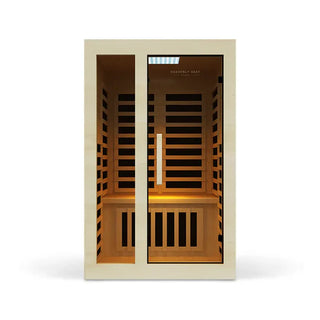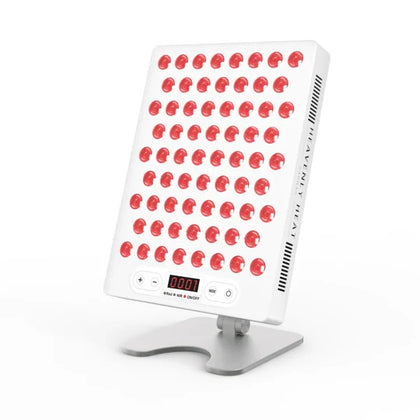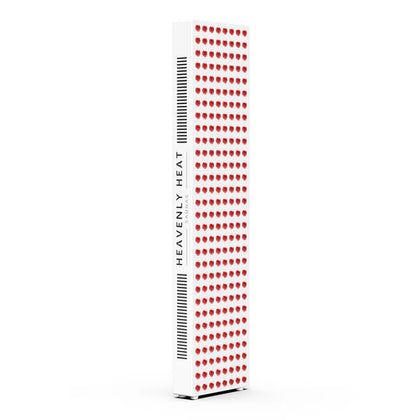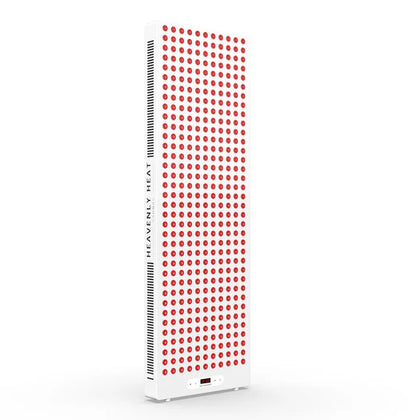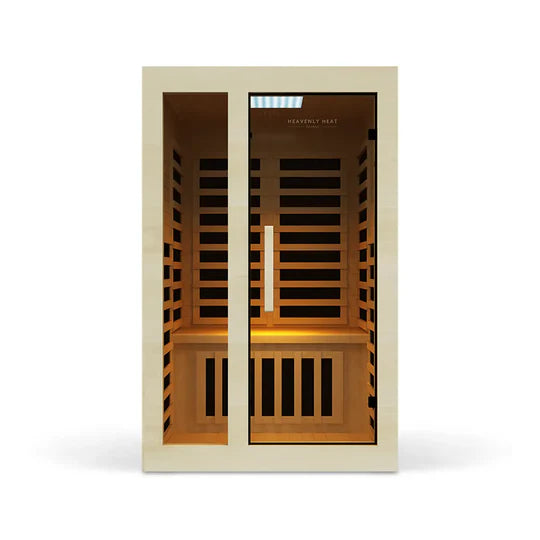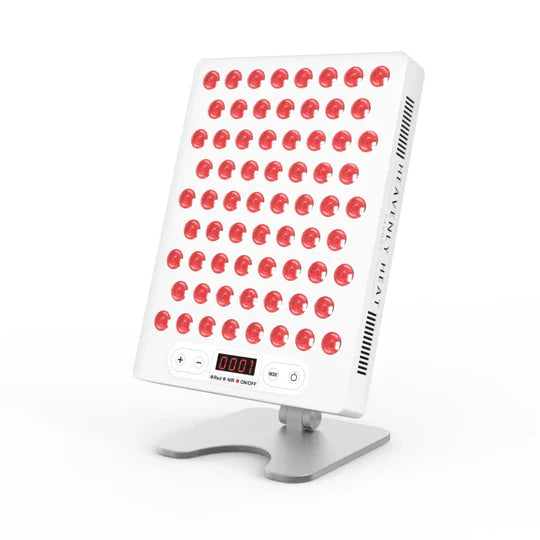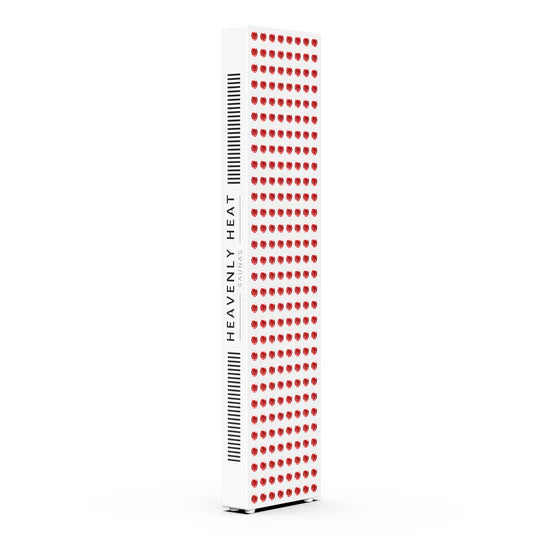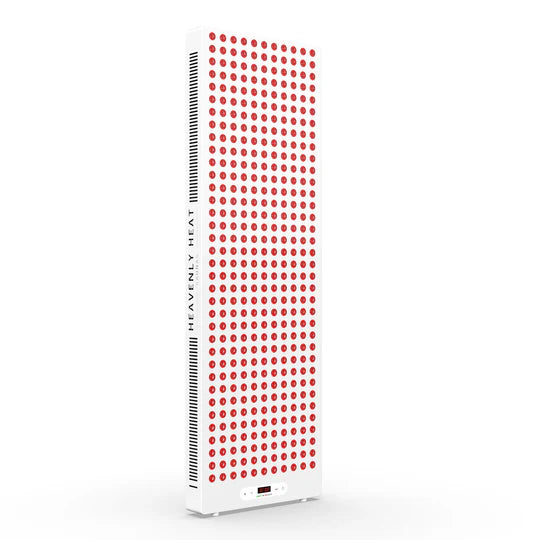How Saunas Can Help Soothe Eczema Symptoms

Itchy and inflamed skin from eczema can make daily life a struggle. Scratching only makes things worse, and harsh treatments often fall short.
Left unchecked, flare-ups can disrupt sleep, confidence, and even simple joys. But what if relief could be as simple as stepping into a sauna? Discover how heat therapy might help calm eczema and restore comfort.
What is Eczema
Eczema is a skin condition that makes the skin red, itchy, and inflamed. It happens when the skin’s protective barrier is weak, making it more sensitive to irritants.
There are different types, including atopic dermatitis, contact dermatitis, and dyshidrotic eczema, each with unique triggers.
Eczema is common, affecting millions worldwide, and it can appear at any age. Since it’s a chronic condition, symptoms come and go, often triggered by allergens, stress, or weather changes.
Doctors diagnose eczema by examining the skin and asking about symptoms. Though it can be frustrating, understanding it helps in finding the right way to manage it.
Benefits of Saunas for Eczema
Reduces Itchiness & Inflammation
Regular sauna use may also help balance the immune system, reducing overactive responses that contribute to flare-ups.
A study found that frequent sauna sessions helped lower key inflammatory markers, including hsCRP, fibrinogen, and white blood cell count.
Since eczema is linked to inflammation, this suggests that sauna therapy may naturally help calm irritated skin and reduce flare-ups.
Over time, this could mean less redness, itching, and discomfort, making sauna therapy a powerful tool for eczema relief.
Keeps Skin Moisturized
Maintaining moisture is crucial for eczema-prone skin, and saunas can aid in this process.
The humid environment of a steam sauna helps hydrate the skin, preventing excessive dryness.
Increased circulation from the heat also delivers vital nutrients that support skin health.
Saunas can even slow transepidermal water loss (TEWL), keeping the skin barrier strong.
According to a study, regular sauna use can improve skin hydration and help strengthen the skin barrier.
The research showed that sauna exposure increased moisture retention and helped the skin recover faster from irritants like pH changes.
This is especially beneficial for eczema sufferers, as a stronger, more hydrated skin barrier can reduce inflammation and prevent flare-ups.
If you make sauna sessions a regular part of your routine, it may offer lasting relief from dryness and irritation, keeping your skin more balanced and comfortable.
According to a study, moisturizing with a high-oil content cream twice a day helps lock in hydration and strengthens the skin barrier.
It also recommends moisturizing hands after every wash and applying lotion before bed to maximize moisture retention.
Combining this with regular sauna use can further protect eczema-prone skin, preventing excessive dryness and reducing irritation.
Speeds Up Healing
Saunas can help your skin heal faster from eczema by boosting how your body repairs itself. When you sit in a sauna, the heat gently stresses your body in a good way.
This kick-starts healing responses that repair damaged skin and calm inflammation. Over time, your body gets better at handling this heat, which helps speed up recovery even more.
One review showed that , sauna use activates important healing systems in the body. Another study found that , athletes used saunas to recover faster from injuries, proof that the same healing boost can help eczema too.
Removes Toxins That Trigger Flares
Sweating is one of the body's natural ways to eliminate toxins that can trigger eczema flare-ups.
Saunas help with this process by promoting deep sweating, which flushes out heavy metals and harmful chemicals that may accumulate in the body.
Research suggests that different types of sweating influence how toxins are released.
One study found that dynamic exercise, like running, leads to a higher removal of heavy metals such as nickel, lead, copper, and arsenic compared to passive sweating in a sauna.
However, both methods support detoxification, which may help improve skin health.
Infrared saunas, in particular, penetrate deeper into the skin, aiding in toxin removal at a cellular level.
By reducing the body's toxic load, sauna use may contribute to fewer flare-ups and healthier skin over time.
Strengthens the Skin Barrier
A strong skin barrier helps calm eczema by keeping moisture in and blocking things that irritate the skin.
Saunas can help with this. For example, a study in Dermatology , looked at people who used Finnish saunas regularly.
Their skin held onto moisture better, bounced back faster after heat, and stayed more balanced overall.
The heat seemed to train their skin to stay hydrated and recover quicker. This means regular sauna sessions might make your skin stronger and less likely to flare up, just what you need when dealing with eczema.
Eases Stress (a Common Eczema Trigger)
Stress and eczema often go hand in hand, but saunas can provide a calming escape. The soothing warmth relaxes tense muscles, lowers cortisol levels, and promotes an overall sense of well-being.
Many eczema sufferers experience heightened symptoms during stressful periods, making stress management crucial.
Sauna therapy encourages mindfulness and relaxation, helping to break the cycle of stress-induced flare-ups.
Additionally, the deep heat promotes better sleep, another key factor in stress reduction.
By making saunas a part of a self-care routine, individuals may find relief from both emotional and physical eczema triggers.
Supports a Healthy Immune System
The immune system plays a major role in eczema, and saunas may help support its balance.
Regular heat exposure boosts white blood cell production, which strengthens the body's natural defenses.
Infrared saunas, in particular, may help modulate immune responses, reducing autoimmune-related inflammation.
Heat therapy also encourages circulation, allowing immune cells to reach affected areas more effectively.
By keeping the immune system in check, saunas can help prevent unnecessary inflammatory reactions that contribute to eczema symptoms. Over time, this may lead to fewer flare-ups and improved skin resilience.
Improves Sleep for Better Skin Repair
When you sleep well, your skin gets a real chance to heal, something super important if you have eczema.
Saunas help you relax and sleep deeper, which can calm itchy, inflamed skin. In fact, a study in Complementary Therapies in Medicine , found that 83.5% of sauna users slept better. Better sleep means better skin. Simple as that!
Other Therapies that help with Eczema
Wet Wrap Therapy
Wet Wrap Therapy is a simple yet powerful way to soothe eczema flare-ups, especially in children. It works by applying a layer of topical ointment to the skin, then wrapping the area with a damp bandage, followed by a dry one.
This locks in moisture, reduces itching, and helps the skin absorb treatments more effectively. According to research published in Archives of Disease in Childhood , children using wet wraps saw major improvements in eczema severity within four weeks, showing results similar to conventional treatments but with deeper hydration benefits.
Colloidal Oatmeal Baths
Colloidal oatmeal baths give your skin a break when eczema flares up. When you soak in the bath, the fine oatmeal forms a silky layer that soothes itching, calms redness, and helps your skin hold onto moisture.
It’s like a gentle hug for irritated skin. According to the Journal of Drugs in Dermatology , researchers found that colloidal oatmeal lowered inflammation and helped people see real improvements in dryness, roughness, and itching.
The oats also fight off harmful free radicals, which makes them a powerful, natural option for easing eczema.
Coconut Oil
Coconut oil works like a natural shield for eczema-prone skin. It locks in moisture, calms redness, and helps fight off bacteria that can make flare-ups worse.
It doesn’t just feel good, it makes a real difference. One study, shared by Mary Ann Liebert , showed that people using a coconut oil-based formula felt 65% less itchy and needed fewer steroid creams after just four weeks.
Their skin also had less of the bad bacteria that often triggers eczema. It’s a simple, natural therapy that really helps calm the skin.
Best Type of Sauna for Eczema
Finnish Sauna (Traditional)
A Finnish sauna uses dry heat, typically between 160-200°F, which can be beneficial for eczema sufferers.
The warmth increases blood circulation, promoting skin healing. However, for sensitive skin, the intense heat might sometimes trigger irritation.
To minimize discomfort, limit sessions to 10-15 minutes and follow up with proper hydration and moisturization.
Sweating in a Finnish sauna helps remove toxins from the skin, potentially reducing eczema flare-ups. As sweat flushes out impurities, it may clear pores and remove irritants.
Infrared Sauna
Unlike Finnish saunas, infrared saunas operate at lower temperatures, usually around 120-150°F, making them gentler on sensitive skin.
The infrared heat penetrates deeper into tissues, promoting circulation and healing without excessively drying the skin.
This can be especially beneficial for eczema sufferers who find high temperatures too harsh.
Infrared sauna therapy is known for reducing inflammation, which is a major factor in eczema flare-ups.
The deep heat helps soothe irritated skin and may lessen redness. Many people report relief from itching after consistent use, as infrared therapy encourages natural skin regeneration.
Steam Sauna (Steam Room)
Steam saunas provide a humid environment that can be particularly soothing for dry, irritated eczema-prone skin.
Unlike dry heat, steam hydrates the skin, helping to alleviate tightness and flakiness. The warmth also boosts circulation, supporting the body's natural healing processes.
For some eczema sufferers, steam rooms may reduce flare-ups by moisturizing the skin and promoting relaxation.
However, excessive heat and prolonged exposure can trigger sensitivity. Short, controlled sessions of 10-15 minutes can be effective in providing relief without overstimulating the skin.
While steam saunas are generally safe for those with eczema, caution is necessary. High humidity can sometimes encourage bacterial or fungal growth on the skin, leading to irritation.
To prevent this, rinse off immediately after a session and pat the skin dry rather than rubbing.
Risks of Sauna Use for Eczema
Saunas Can Dry Out Your Skin
Saunas expose the body to high temperatures, which can cause excessive moisture loss.
This is especially concerning for people with eczema since their skin barrier is already compromised.
The intense heat evaporates natural oils, making the skin feel even drier. Some may notice that repeated sauna sessions worsen chronic dryness, leading to flaky, tight, or irritated skin.
Sweating can help maintain hydration, but if it evaporates too quickly, it may contribute to dehydration.
People with naturally dry or sensitive skin are more prone to sauna-induced moisture loss. To prevent excessive dryness, moisturizing immediately after a session is crucial.
More Itching and Irritation
Many eczema sufferers find that saunas make their skin itchier. The high heat increases circulation, which can heighten sensitivity and lead to more discomfort.
Sweating, while beneficial in some cases, can also trigger itching as it dries on the skin.
This reaction can be especially frustrating for those who already struggle with constant itchiness.
Some may even experience a burning sensation when stepping out of a sauna. To reduce post-sauna itching, showering with lukewarm water and applying a gentle moisturizer can help calm irritated skin.
Sweat Might Trigger Flare-Ups
Sweating is a natural response to heat, but for people with eczema, it can sometimes do more harm than good.
When sweat sits on the skin, it can cause irritation and trigger flare-ups. The combination of heat and sweat may weaken the skin barrier, making it easier for irritants to penetrate.
If sweat dries on the skin, it can leave behind salt and other residues that contribute to inflammation.
To prevent flare-ups, rinsing off sweat as soon as possible and wearing breathable fabrics can help minimize irritation.
Heat Can Make Skin Red and Inflamed
People with eczema often find that heat worsens their symptoms. High temperatures can cause increased blood flow to the skin, resulting in redness and inflammation.
Some individuals may experience heightened sensitivity, making the skin feel raw and sore.
Sweating can further aggravate the situation, leading to prolonged irritation. Additionally, prolonged exposure to heat may weaken the skin barrier, making it more susceptible to damage.
To reduce redness and inflammation, it’s best to limit sauna sessions to shorter durations and avoid extreme heat.
Weak Skin Barrier Increases Sensitivity
Eczema-prone skin has a naturally weak barrier, making it more vulnerable to external stressors like heat and humidity.
Sauna heat can further weaken the skin’s defenses, leading to increased sensitivity.
Excessive sweating can strip the skin of essential oils, exacerbating dryness and irritation.
Rapid temperature shifts, such as moving from a hot sauna to a cold environment, may also trigger discomfort.
To protect the skin barrier, applying a thick, fragrance-free moisturizer before and after sauna use can help maintain hydration and reduce sensitivity.
Higher Risk of Skin Infections
Because eczema causes cracks and open wounds, sauna use can increase the risk of infections.
Bacteria and fungi thrive in warm, moist environments, making public saunas a potential hazard for people with eczema.
Shared surfaces can harbor harmful microorganisms that may enter broken skin, leading to infections.
Fungal infections, in particular, are more common in humid sauna conditions. To stay safe, using a clean towel as a barrier, avoiding direct contact with sauna benches, and practicing good hygiene can help minimize risks.
Humidity May Cause Fungal Growth
Saunas often have high humidity levels, which can encourage fungal growth. Fungi thrive in damp environments, and wooden sauna benches can become breeding grounds for spores.
People with eczema are more prone to fungal infections due to their compromised skin barrier.
Using public saunas increases the likelihood of coming into contact with fungal organisms. If a person already has a fungal infection, sauna use may worsen it.
To reduce risk, wearing sandals, bringing a personal towel, and showering after each session can help prevent fungal-related skin issues.
Sudden Temperature Changes Stress Skin
Going from the intense heat of a sauna to cold air can shock the skin. Eczema-prone skin is particularly sensitive to temperature fluctuations, which can lead to flare-ups.
The sudden cooling effect may cause blood vessels to constrict, leading to increased redness and irritation.
Some individuals notice that their eczema becomes more inflamed when exposed to rapid temperature shifts.
To avoid stress on the skin, it’s best to gradually cool down after a sauna session instead of stepping into cold air immediately.
Sauna Therapy and Eczema Medications
Certain eczema medications, especially topical steroids, may interact negatively with sauna heat.
High temperatures can cause these treatments to break down more quickly, reducing their effectiveness.
Sweating may also wash away topical creams before they have time to absorb properly.
In some cases, heat can increase skin sensitivity, making medication-related irritation more likely.
If using prescription eczema treatments, it’s best to consult a dermatologist before incorporating sauna therapy.
Applying medication after a sauna session rather than before can also help maintain its effectiveness.
Best Sauna Practices for Eczema
Limit Your Time – Keep sessions short to avoid irritation.
Saunas can be soothing, but too much time inside can dry out your skin and trigger eczema flare-ups.
A good rule of thumb is to keep sessions between 5 to 15 minutes, depending on how your skin reacts.
If you notice redness, itching, or discomfort, it’s a sign to step out. Overheating can strip your skin of essential moisture, making eczema symptoms worse.
Listen to your body, and if your skin feels tight or irritated afterward, consider shortening your next session.
Stay Hydrated – Drink plenty of water before and after.
Dehydration can make eczema worse, especially after a sauna session. Drinking water before, during, and after your sauna visit helps your skin retain moisture.
If you have chronic dry skin, adding electrolytes can help replenish lost minerals.
Hydrating properly can also reduce post-sauna itchiness and keep your skin feeling balanced.
Opt for water or herbal teas over sugary drinks, as sugar can contribute to inflammation.
Moisturize Before & After – Lock in moisture to protect your skin.
Applying a gentle moisturizer before entering a sauna can create a barrier that helps your skin retain hydration.
Post-sauna, it’s crucial to reapply moisturizer to prevent dryness. The best time is right after you rinse off when your skin is still slightly damp—this helps lock in hydration.
Avoid products with strong fragrances or alcohol, as these can be irritating.
Wear Loose, Breathable Clothing – Avoid fabrics that trap heat.
Heat and sweat trapped against your skin can worsen eczema, so opt for lightweight, breathable fabrics like cotton or bamboo.
Tight, synthetic materials can cause overheating and irritation, making symptoms worse. Loose-fitting clothing allows air circulation, helping regulate your body temperature.
If you experience excessive sweating, consider bringing a change of clothes to avoid prolonged dampness on your skin.
Use a Clean Towel – Prevent bacteria and irritation.
A fresh, clean towel is essential for eczema sufferers using a sauna. Bacteria and fungi thrive in damp towels, which can lead to skin infections and worsen eczema symptoms.
Always bring your own towel and avoid sharing. After your session, gently pat your skin dry—rubbing can cause irritation.
Avoid High Temperatures – Stick to mild heat settings.
Eczema-prone skin is sensitive to extreme temperatures, so it’s best to keep sauna heat mild.
A range between 110–130°F (43–54°C) is ideal. Higher temperatures can strip moisture from the skin, causing dehydration and irritation.
If you start feeling lightheaded or notice excessive redness, step out and cool down gradually.
Some people with eczema find that building heat tolerance over time helps, but it’s important to listen to your skin and adjust accordingly.
Rinse Off Gently – Use lukewarm water after your session.
After leaving the sauna, rinse off with lukewarm water rather than hot or cold water. Hot water can strip the skin of essential oils, making eczema symptoms worse, while cold water may cause sudden temperature shocks.
A gentle rinse removes sweat and toxins without causing irritation. Avoid scrubbing or using harsh soaps; instead, opt for mild, fragrance-free cleansers.
Pat your skin dry with a soft towel instead of rubbing to prevent unnecessary friction and irritation.
Check Your Skin – Watch for any irritation or flare-ups.
Pay attention to how your skin reacts after each sauna session. Early signs of irritation include increased redness, itching, or a tight, dry feeling.
Areas like the elbows, knees, and hands tend to be more vulnerable. If you notice any worsening symptoms, consider reducing your sauna time or adjusting your post-sauna skincare routine.
Differentiating between normal post-sauna redness and an eczema flare-up can help you manage your sessions effectively.
Follow a Gentle Skincare Routine – Soothe and protect your skin post-sauna.
A gentle skincare routine after a sauna can help prevent eczema flare-ups. Use a hydrating, fragrance-free moisturizer to restore lost moisture.
If your skin feels extra dry, try layering a thick cream over a lightweight lotion for added hydration.
Avoid exfoliating or using products with alcohol, as they can further dry out the skin.
Stick to mild, skin-barrier-supporting ingredients like ceramides, aloe vera, and oat extract.
With the right care, you can enjoy saunas while keeping your eczema symptoms under control.




